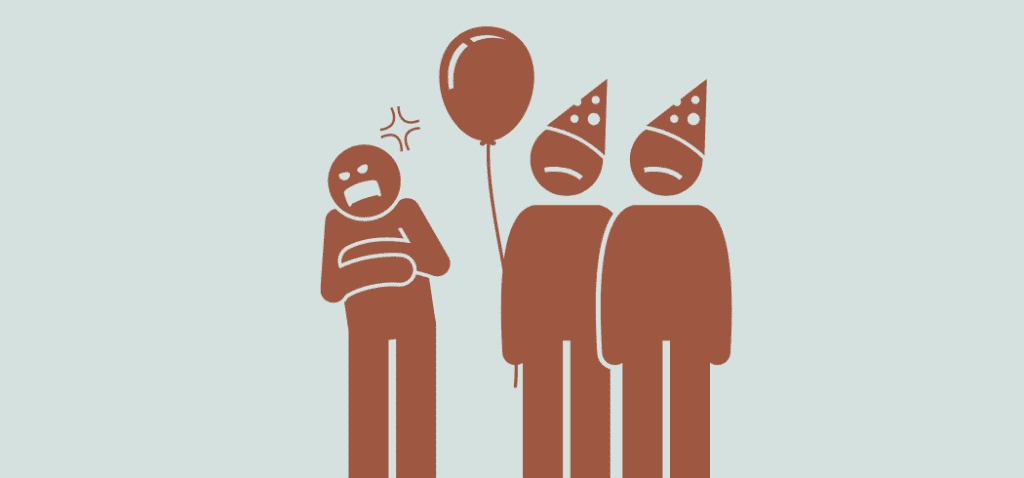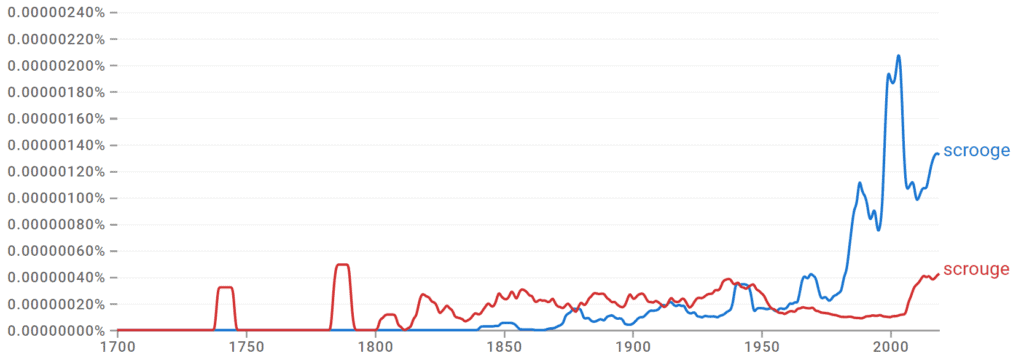Languages are fun. Every language has different sayings, analogies, and idioms that help create a more colorful and illustrative speech pattern. Many influences on language come from popular literary and dramatic culture, and words that might otherwise seem meaningless become essential in describing certain scenarios.
Name-calling is an excellent example of this. Characters with unique behaviors and attributes often make their way into everyday language and provide examples of certain mannerisms and conduct. These names are used as a pejorative slang term, and Scrooge, the main antagonist from Charles Dickens’s famous novel and screenplay, A Christmas Carol, is the perfect example of this.
What Does Scrooge Mean?

A Scrooge is someone who is a cheapskate or a miser who shuns Christmas, fun, and celebrations in general. They also often try to ruin these occasions for others through anti-social behaviors and poor treatment of those around them.
The word scrooge is derived from the literary character Ebenezer Scrooge, created by Charles Dickens in his 1843 novel A Christmas Carol. Scrooge’s antagonizing demeanor was so well developed that the name became synonymous with his poor behaviors.
The catch to this, however, is that by the end of the story, Scrooge has changed and learned to embrace his past, forgive himself, and make amends for his years of abusing those around him. Therefore, when you use the term Scrooge to describe somebody, you also indicate they aren’t so far gone in their behaviors that they can’t change.
How to Use Scrooge in Sentences
Scrooge refers to a surname and is considered a proper noun when used in this manner. However, it can also be used to name specific behaviors or as an adjective, which can be lowercase. It also can be used as a verb to describe the actions of someone who is miserly.
Scrooge as a Noun
- Sarah decided to go to her work party alone since her significant other was such a Scrooge in social situations.
- Only scrooges avoid the bustle of the holiday season due to their inability to embrace the excitement of it all.
- Her scrooging behavior was exactly why she wasn’t invited to participate in the gift exchange.
Scrooge as a Verb
- Jonathon scrooged on Dora’s birthday gift and was embarrassed when he saw the effort she had put into his.
Spelling and Origin of Scrooge

A Christmas Carol is a novel written by British author Charles Dickens (published in 1853) about the antagonist Ebenezer Scrooge who shuns the celebration of Christmas in all ways.
Ebenezer Scrooge is a miserly old man who feels sorry for himself and takes his life’s woes out on everyone around him – especially his loyal employee. With the arrival of the Christmas season, he is particularly put out by the cheer he witnesses, mainly because he has no family and is quite alone due to his decisions to put work and money before all else when he is younger.
On Christmas Eve, three ghosts visit him, showing him how his past and present actions, and even future death, affect those around him. Through these interventions, he comes to understand the spirit of giving and joy that is Christmas and how to accept the responsibilities of his actions.
The popularity of the story influenced its use on stage, and by 1905, the word scrooge was a generic way to declare somebody a miser. Today the story is somewhat of a tradition to show around the holiday season as a reminder to stay in the spirit of giving and not let apathy or selfishness creep into your behavior. In fact, multiple movies have been made of the story for the enjoyment of all ages.
The name Scrooge itself is not a genuine British surname and was likely influenced by the 18th-century word scrounge, meaning to “squeeze, press or crowd (someone),” much like Ebenezer does when it comes to people who owe him money.
Let’s Review
The term Scrooge derives from the surname of a famous antagonist written in Charles Dickens’s story, A Christmas Carol. Scrooge is a miserly old man who makes everyone around him miserable and who places wealth above human relationships.
Within the story, he experiences supernatural occurrences that force him to see himself through the eyes of others and changes the way he lives. In the end, he embraces the spirit of giving and companionship and is a changed man. When you use the term Scrooge, whether as a nod towards the character or as a way to describe a person or behaviors, you are saying they are anti-social, miserly, and disrespectful of the people around them. You also hint that they can improve as well.
